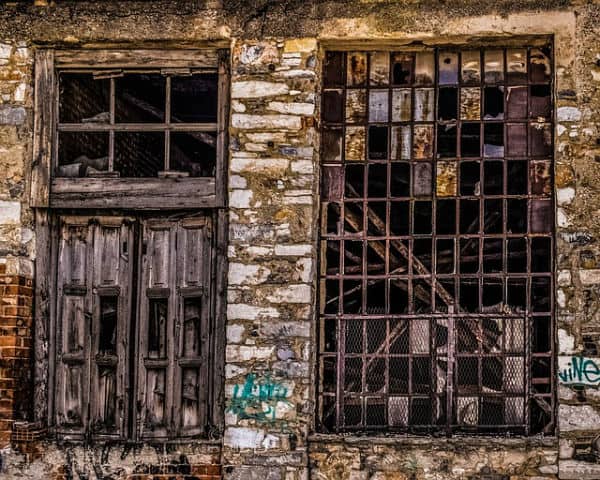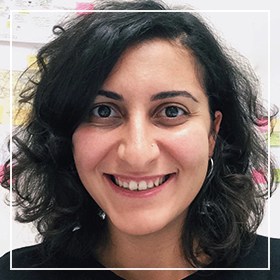The EASA AGM Seminar in Bern simply came in a bad time. It confronted me with a dilemma: while I was eager to follow the workshops and act in solidarity with my colleagues and a common future, I simultaneously knew that every hour I spent at the event kept me away from work and by extension from the hope that I will have a future. I was writing the introductory chapter of my thesis with the aspiration of finally concluding a long epoch of my life – life as a doctoral student. However, for me, like so many others, working feverishly on the completion of a PhD thesis feels like running towards a cliff, because I do not know what comes next.
I do not consider going back to my home city Ankara or my home country Turkey as an option, because I no longer believe that I have chances of finding a job as a researcher or lecturer there, although this was the original plan when I started my doctoral studies in Switzerland six years ago.
Even if I managed to find a job, it most probably would not be a very desirable position, as academia is on the verge of collapse in Turkey.
Academic freedom has always been restricted in Turkey. However, academia started to collapse two years ago when a group of academics known as ‘Academics for Peace’ signed a petition against the state’s military action in the southeast of Turkey. “The petition came out of the violence of being forced to witness and being silent to the fear of death in the context of uncertainty” as Özlem Biner powerfully expressed during the keynote speech of the seminar.
Disciplinary investigations about signatories were followed by cancellation of passports and lifetime bans from employment as civil servants with decree laws after the post-coup d’état attempt in July 2016.
Self-censorship has become a main survival strategy of those who remained.
For Biner, this process crashed a generation of social scientists emerged after 2000s, who are decidedly more outspoken and critical about certain state practices, including discrimination and violence against ethnic, political, and religious minorities.
While this is the case in Turkey, despite an established network of friends and colleagues in Switzerland, I do not believe that I will be able to stay in Switzerland either, because the migration bureau requires a fulltime job contract for granting an extension of my visa – and this is a quite challenging task for an anthropologist to achieve in a competitive job market. Although salaries in Switzerland are high and working conditions are excellent in comparison to other universities in Europe, there are not many job opportunities available, particularly for students from non-EU countries. Therefore I know that I will have to move on – where to exactly nobody knows.
Transnational networks of solidarity are of urgent importance for people like me. I am not a single case. On the contrary, my story is only one possibility where two kinds of precarities overlap, namely being at risk under authoritarian regime on the one hand and economic insecurity on the other. The first workshop of the AGM seminar in Bern was dedicated to this overlap and most of the speakers had an experience from Turkey.
In her introductory remarks, Ester Gallo from the University of Trento briefly summarized the processes, which put the higher education in Turkey into a crisis. For Gallo, especially the AKP government’s policies after the post-coup d’etat attempt were nothing other than ‘surreal.’ Most of the academics who were dismissed on the ground that they were involved the coup attempt and have connections with the Gülen Movement, which was announced as a terrorist organization, were, in fact, mainly oppositional academics, who were critical both about the Justice and Development Party (AKP) and the Gülenists. Some of these scholars could find jobs, funds, or scholarships abroad and left the country.
Gallo invited the audience to have a closer look at the encounters caused by this ‘forced mobility.’ For her, there is an urgent need for solidarity between the ones who arrive and the ones who host newcomers.
Unfortunately, for some dismissed academics in Turkey, it has not been possible to leave the country even if they have job opportunities abroad.
Esra Dabağcı was one of them and she shared her auto-ethnography of a dismissed junior academic.[1] Dabağcı couldn’t be present in the room because her passport had been cancelled with the decree law in September 2016, which also led to her dismissal from her job as a research assistant at Ankara University. In order to define the process lead to the precarious situation for academics, she introduced four pillars, which are namely, the intervention of the central government, the problems related to social relations between academics and their self-perception that vary from criminalization of academics for peace to auto-censorship, the general academic culture in Turkey that was already disadvantaged since the 1980 coup d’etat, and finally, the overall political project of the AKP.
Dabağcı also introduced forms of resistance and solidarity under these conditions, and especially talked about ‘street academies’ that are locally organized. However, she emphasized that it is not easy to come together all the time. More importantly, she said, “it is almost impossible to communicate with people having different political orientations because of extreme polarization in the society.”
Following her, Katharina Bodirsky from the University of Konstanz underlined the link between dismissals in authoritarian contexts and long-term security in Western universities.[2] She provoked questions about politics of voice, of connectivity and of knowledge. As citizens claiming an authority to speak based on the knowledge we have, Bodirsky first asked, whom do we speak to and want to be heard by, and who actually listens to us? Secondly, she brought attention to the connections and the relations that we need to establish and strengthen across borders, between those who come and stay and those who already are ‘here’ or ‘there’ and don’t want to leave. Finally, she gathered voice and connectivity in a politics of knowledge and asked how we can reflect upon our positionalities and raise the critique of precarity without falling into populist rhetoric, which reproduces this polarity.
Aimilia Voulvouli from the Aristotle University of Thessaloniki told the story of three Greek scholars (including herself) in Turkey, where they took shelter from the ‘new university’ created by the impacts of the austerity package in Greece. Although they were working under relatively safe conditions in Turkish universities, their contracts were terminated after the coup d’etat attempt in July 2016.
Voulvouli’s presentation made it clear that the attempted coup did not only hit Turkish but also non-Turkish academics.
Therefore, she called for collective action for our common labour interests. For her the oppression experienced in the universities in Turkey is not an exception but rather the future that is likely to be example to practices in Europe. In the discussion following Voulvouli’s talk there was a sense of agreement that the state and the market dichotomy should be broken, because in terms of the conditions they impose on us they are not so different from each other when it comes to migrant precarious labourers, like ourselves.
Building upon his own experience and discussions with colleagues in Pakistan, Inayat Ali from the University of Vienna showed how anthropology is perceived as an ‘orphan discipline’ in Pakistan. [3] Combining this with his experience in Europe as a doctoral researcher, he showed that borders often become significant players in a non-European academic’s career path. Ali’s talk illustrated that not only competition between different ideologies and political movements, but also different institutional and contextual histories of anthropological knowledge all work together to create precarity.
Reflecting on all papers, Sarah Green, the chair of the session, argued that during the times when people become increasingly afraid to speak, the tone of their voice becomes very important.
During the discussion that followed, we agreed that it is also important to look back and find what we can learn from others’ experience in the past.
Green concluded the workshop with interesting remarks, which made me think for a while. She said, our positionalities as academics are worth to reflect upon. However, both insecure and scarce ‘job positions’ in academia and ‘geographical positions’ of these jobs as well as academics are equally important to contemplate. Then she asked the obvious question, the answer of which she left open: “Why Turkey is in this situation now?”
After the EASA AGM Seminar ended, I was alone again with my introduction chapter. I should say that I could finish the part on ‘researcher’s positionality’ in a couple of days, fully inspired by a community of scholars who care about each other and are critically engaging with the conditions surrounding them. The chapter still needs a lot of work because it’s ‘tone’ is not strong enough yet. All in all, I feel pushed to work hard and say in the best way possible what I am going to say until the people by whom I want to be listened to can hear me. Because as the part of a generation of scholars that Biner referred to in her speech, I know that we have a long answer to the question why Turkey is in this situation now and only with a transnational network we can make ourselves heard.
And – we definitely need to be heard.
[1] “An Ordinary Story from Turkey: An Autoethnography of a Dismissed Junior Academic”
[2] “Questions of Political Strategy: Weighing a Politics of Voice, of Connectivity, and of Knowledge”
[3] “Prevailing Politics and Precarities: An Anthropological Account of a Pakistani Anthropologist!”
Featured image (cropped) by Shena Tschofen (flickr, CC BY-NC-ND 2.0)







